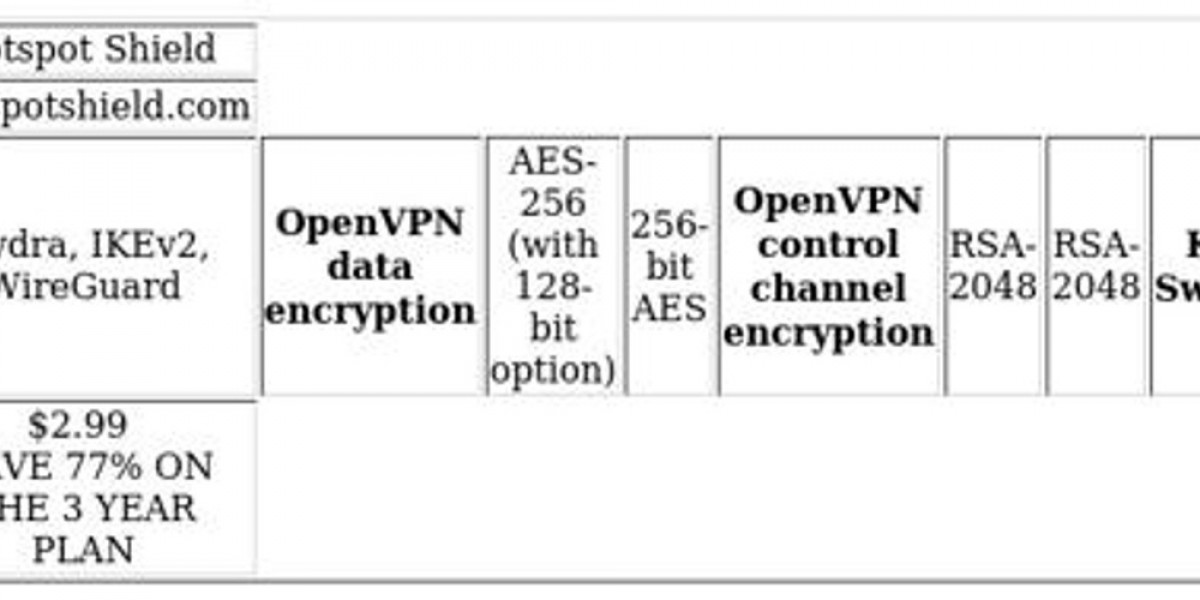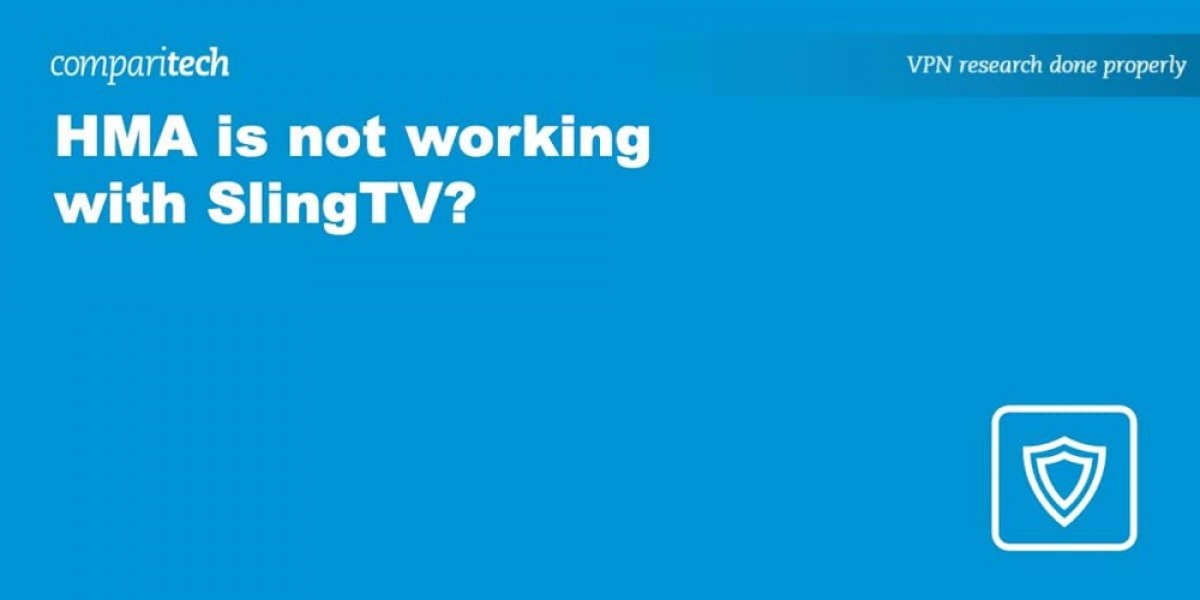VPN Comparison: PrivateVPN vs Hotspot Shield
When it comes to selecting a virtual private network (VPN), various factors come into play. Some users might prioritize rapid server speeds, while others might be more concerned with robust security measures. Ideally, you might be seeking a VPN that excels in all these aspects. The key is to find the one that aligns best with your specific needs.
In this comparison, we will delve into the details of two well-regarded VPN providers: PrivateVPN and Hotspot Shield. Both have their strengths and are generally well-received. We will examine multiple facets of their services, including pricing, features, security protocols, and customer support. By thoroughly comparing these elements, we aim to highlight which service stands out and to help you make a more informed choice.
When comparing the pricing of PrivateVPN and Hotspot Shield, it's evident that the monthly cost can fluctuate depending on the length of your subscription. For those who prefer a flexible, month-to-month arrangement, PrivateVPN charges $8.10 per month, while Hotspot Shield’s standard plan is $12.99 per month, with their Premium Family plan costing $19.99 per month. This flexibility lets you cancel at any time without a significant upfront payment, but it comes with a higher monthly fee.
For those looking to save, PrivateVPN offers a unique three-month plan, which is not commonly found among other VPN providers. This plan reduces the cost by 54%, bringing the monthly price down to $5.03. Additionally, they have an even more attractive one-year plan, where you get 12 extra months for free, effectively making the monthly cost just $2.08—a substantial 82% discount.
Hotspot Shield, on the other hand, provides a premium annual plan at $7.99 per month, which saves you 38%. Their Premium Family plan, which supports up to five accounts, is available for $11.99 per month, offering a 40% discount. They also have a special three-year plan, exclusive to Comparitech readers, with a 77% discount, averaging out to $2.99 per month over the term.
In terms of overall cost, PrivateVPN is the more affordable option. However, if you are looking for a longer trial period, Hotspot Shield offers a 45-day money-back guarantee, compared to PrivateVPN’s 30-day guarantee. Both services provide a risk-free trial period, allowing you to test the service and request a refund within the specified timeframe if you are not satisfied.
The best value for PrivateVPN is their 12-month plan, which gives an 82% discount. For Hotspot Shield, the best deal is their exclusive three-year plan, offering a 77% discount and an average monthly cost of just $2.99.
When evaluating premium VPN services, Hotspot Shield distinguishes itself by bundling additional tools like 1Password for credential management and Robo Shield for filtering unwanted calls.
These extras come at a steeper subscription cost compared to PrivateVPN's more budget-friendly pricing, prompting users to assess their need for ancillary services.
Selective app routing emerges as another differentiator – Hotspot Shield's desktop and mobile clients permit specific applications to bypass encrypted tunnels,
enabling simultaneous access to regional content and geo-restricted platforms, a capability absent in PrivateVPN's feature set.
Multi-device support reveals a narrow gap between the providers, with PrivateVPN permitting six concurrent connections versus Hotspot Shield's five-device limit.
While the former technically accommodates larger households, both thresholds exceed typical usage patterns for individual users or small families.
Cross-platform compatibility shows parity in core operating systems (Windows, macOS, Android, iOS) and Linux terminal access,
though Hotspot Shield extends functionality through a dedicated Chrome extension, broadening its browser-based privacy options.
Streaming Performance: PrivateVPN vs Hotspot Shield
When selecting a VPN for streaming purposes, both PrivateVPN and Hotspot Shield deliver impressive performance. These services offer users unlimited data, ensuring continuous streaming without any imposed limits or throttling.
Speed comparison tests reveal that PrivateVPN generally achieves slightly higher connection speeds, though both providers maintain reliable performance across their server networks. The difference is minimal enough that most users won't notice significant variations during regular streaming activities.
Content Unblocking Capabilities
PrivateVPN demonstrates a slight edge in unblocking regional streaming platforms. During testing, it successfully accessed BBC iPlayer and Sky Go—services that proved challenging for Hotspot Shield to bypass.
Both services effectively unblock multiple Netflix libraries, including the coveted US version, as well as Amazon Prime Video content. This makes either option valuable for travelers wanting access to their home streaming services while abroad. Additionally, both VPNs support P2P file sharing across their server networks.
Functioning in Restricted Environments
A standout feature of both PrivateVPN and Hotspot Shield is their ability to operate in China's highly restricted internet environment. This capability distinguishes them from many competing VPN services that are effectively blocked by the country's sophisticated censorship system.
PrivateVPN achieves this through its Stealth VPN technology, which disguises VPN traffic as standard web traffic to evade deep packet inspection. Meanwhile, Hotspot Shield relies on its proprietary Catapult Hydra protocol to bypass government restrictions.
Important Considerations for China Users
Travelers planning to use either service in China should note that the providers' websites are blocked within the country. Pre-installation before arrival is essential for access.
Once in China, users may need to experiment with different server connections, as authorities actively block known VPN IP addresses. This trial-and-error approach is typical when using VPNs in heavily restricted internet environments.
Setting Up Your VPN: A Comparison of PrivateVPN and Hotspot Shield
Both PrivateVPN and Hotspot Shield provide user-friendly setup experiences through their automatic setup wizards. The entire process from account creation to installation typically requires just minutes of your time on either desktop or mobile platforms.
Once installed, you'll appreciate the clean, uncluttered interfaces of both services. Each prioritizes essential functions with prominent on/off toggles and straightforward server selection via convenient drop-down lists organized by geographic location.
Notable differences emerge in their unique features. PrivateVPN allows users to bookmark favorite servers for quick access and offers dual interface options - a simple view for beginners and an advanced mode for experienced users. Meanwhile, Hotspot Shield's mobile application includes a useful auto-connect feature that selects the fastest available server without manual intervention.
Settings accessibility is excellent in both VPNs, with protocol selection available in each. PrivateVPN goes further by including kill switch functionality and its specialized Stealth VPN feature for enhanced privacy. Overall, both services deliver comparable user experiences with only minor distinctions in their application designs and capabilities.
When comparing the server networks, Hotspot Shield boasts a significantly larger infrastructure, with over 1,800 servers spread across 80 countries. On the other hand, PrivateVPN has a more modest network, with around 150 servers in 60 countries. Despite the size difference, most users will find that PrivateVPN's network is sufficient for their needs. The smaller number of servers could potentially cause issues if they become overcrowded, but in practice, finding a fast and lightly loaded server is usually straightforward.
Both services provide access to popular locations like the US, UK, and Australia. However, Hotspot Shield stands out by offering servers in less common countries such as Azerbaijan, Pakistan, and Uruguay. This expansive network gives Hotspot Shield an edge in accessing a broader range of geographically restricted content. Nonetheless, both providers are known for their reliable unblocking capabilities.
In terms of speed, both PrivateVPN and Hotspot Shield are among the fastest on the market. PrivateVPN offers an average global download speed of 71 Mbps, while Hotspot Shield provides 63 Mbps. Both services include unlimited bandwidth, which ensures smooth streaming and minimal lag. The larger number of servers available through Hotspot Shield can also help in maintaining lower server loads, leading to more consistent performance.
PrivateVPN vs Hotspot Shield Analysis
Comparing Protocol and Security Features: PrivateVPN vs Hotspot Shield
When examining protocol options, PrivateVPN offers greater versatility with support for OpenVPN, L2TP, and PP2P protocols. Each provides different benefits depending on your needs - whether prioritizing speed or security. OpenVPN remains the industry standard for most users seeking balanced performance.
In contrast, Hotspot Shield takes a different approach by supporting IKEv2 alongside their proprietary Catapult Hydra protocol, which they've developed specifically to optimize their service performance.
Both providers implement military-grade 256-bit AES encryption, ensuring your data remains secure against unauthorized access. However, security feature differences become apparent when examining leak protection capabilities.
PrivateVPN delivers more comprehensive protection with both DNS and IPv6 leak prevention, while Hotspot Shield only safeguards against DNS leaks. For users needing to bypass restrictive networks, PrivateVPN's Stealth VPN feature provides an additional advantage.
Kill switch implementation varies between services as well. PrivateVPN incorporates this critical security feature across all desktop applications, whereas Hotspot Shield limits it to Windows users only. This emergency mechanism prevents data exposure during unexpected connection drops.
Privacy-conscious users will appreciate that both services maintain private DNS servers, eliminating the need for third-party DNS handling that could potentially compromise your online activities.
When it comes to enhancing your online privacy, both PrivateVPN and Hotspot Shield are viable options. However, if you prioritize robust privacy protection, PrivateVPN stands out as the superior choice. This is largely due to its location in Sweden, a country known for its stringent pro-privacy laws.
On the other hand, Hotspot Shield is based in the United States, a member of the Five Eyes intelligence alliance. While this could potentially mean that user data might be shared with other member countries, Hotspot Shield mitigates this risk by not keeping any logs that can identify individual users. Instead, they only store aggregated data that cannot be traced back to specific individuals.
PrivateVPN, however, adheres to a strict no-logs policy, ensuring that no user data is retained at all. This makes it an even more appealing option for those who are particularly concerned about their privacy.
Both services require an email address for registration, but you can use a disposable email account to add an extra layer of anonymity. PrivateVPN goes a step further by allowing payments in Bitcoin. This means that when combined with a temporary email, you can sign up completely anonymously. Unfortunately, Hotspot Shield does not currently offer any anonymous payment methods.
In the realm of VPN services, IP address management plays a crucial role in preserving user privacy. When comparing security services, understanding how addresses are allocated can significantly impact your browsing experience.
Most premium VPN providers implement shared IP systems where multiple users connect to a single server and utilize the same outward-facing address. This creates a beneficial anonymity effect - your online activities become indistinguishable from others using that same connection point, making individual tracking nearly impossible.
While some services advertise "dedicated IP" options, it's important to clarify what this actually means. Certain providers offer consistent IP addresses that remain static across sessions but are still shared among multiple users. This differs from truly dedicated IPs that would be exclusively yours.
Protection against DDoS attacks comes standard with most VPN services, even without explicit "DDoS protection" features. By masking your actual IP address, these services redirect potential attacks to their robust infrastructure rather than your personal network. If an attack occurs, users can simply switch to another server.
Though specialized firewalls aren't always included, many services implement automatic blocking of unsolicited incoming connections, providing an additional layer of security without requiring separate configuration.
When it comes to customer support, both PrivateVPN and Hotspot Shield offer reliable assistance options for their users, though with some notable differences in availability and response times.
Customer support is accessible through multiple channels for both VPN services. Live chat support is available from both providers, with Hotspot Shield offering round-the-clock assistance, while PrivateVPN's live chat operates for approximately 22 hours daily.
Our email support tests revealed interesting response patterns. PrivateVPN demonstrated exceptional response speed, typically replying within just 14 minutes of receiving our inquiries. Hotspot Shield was somewhat slower, with average response times between 3-4 hours, though this still compares favorably against many competitors in the VPN industry.
Neither service provides telephone support, which is fairly standard practice among VPN providers.
Self-help resources are available from both companies through searchable knowledge bases featuring setup instructions and frequently asked questions. These resources often include helpful screenshots to guide users through various processes. For visual learners, PrivateVPN offers a small selection of tutorial videos on their YouTube channel, while Hotspot Shield doesn't currently provide video-based guidance.
To evaluate support quality thoroughly, we conducted a systematic test by sending identical questions to both providers during different times of day - morning, afternoon, and evening hours - allowing us to assess consistency and responsiveness across their support operations.
First-time VPN users will find both services user-friendly, with intuitive interfaces that minimize the learning curve, making technical support less necessary for most basic operations.
After a thorough analysis of PrivateVPN and Hotspot Shield, our assessment reveals PrivateVPN emerges as the superior option when comparing these two quality VPN services.
Performance testing shows PrivateVPN delivers marginally better speeds, giving it an edge for users focused on streaming content and torrenting activities. Despite Hotspot Shield boasting a more extensive server network, PrivateVPN's coverage across 60 countries provides sufficient global access for most users' needs.
When examining security features, both services offer robust protection, though PrivateVPN provides greater versatility through its wider range of VPN protocol options and additional security features like robocall blocking technology. Privacy-conscious users will appreciate PrivateVPN's advantages: its Swedish jurisdiction, stringent zero-logs policy, and Bitcoin payment acceptance enable completely anonymous service registration when paired with a disposable email address.
Customer support quality is impressive with both providers, though PrivateVPN's email response time stands out as exceptionally quick. Cost-conscious users should note that PrivateVPN offers substantially better value than Hotspot Shield.
New subscribers can take advantage of PrivateVPN's 30-day money-back guarantee, allowing risk-free testing of the service with full refund eligibility if it doesn't meet expectations.
What is a Netflix VPN and How to Get One
A Netflix VPN is a specialized virtual private network service that enables viewers to bypass geographical restrictions on streaming content, allowing access to different regional libraries of shows and movies not normally available in their country. By routing internet traffic through servers in various international locations, a Netflix VPN effectively masks the user's actual location, tricking the streaming platform into displaying content from other regions. This technology has become increasingly popular among streaming enthusiasts who wish to explore the full catalog of Netflix offerings regardless of where they physically reside.
Why Choose SafeShell as Your Netflix VPN?
If you're struggling with Netflix vpn not working issues and want to access region-restricted content, SafeShell VPN might be the solution you're looking for. This powerful VPN service offers several advantages that make it stand out from the competition:
- High-speed dedicated servers optimized specifically for Netflix streaming, ensuring buffer-free playback and high-definition viewing without interruptions
- Multi-device support allowing connection of up to five devices simultaneously across Windows, macOS, iOS, Android, Apple TV, Android TV, and even Apple Vision Pro
- Innovative App Mode feature that uniquely enables accessing content from multiple regions concurrently, expanding your entertainment options significantly
- Unlimited bandwidth with lightning-fast connection speeds, eliminating frustrating buffering and throttling issues that plague other VPN services
- Advanced security through the proprietary "ShellGuard" VPN protocol, protecting your private browsing sessions with top-level encryption
- Risk-free exploration with a flexible free trial plan, allowing you to experience SafeShell VPN's premium features before committing to a subscription
A Step-by-Step Guide to Watch Netflix with SafeShell VPN
To start using SafeShell Netflix VPN , the first step is to subscribe to the service. Visit the SafeShell VPN website and select a plan that suits your needs. After choosing your plan, click the "Subscribe Now" button to complete the subscription process. Once you have subscribed, proceed to download and install the SafeShell VPN app. Go to the SafeShell VPN website, choose your device (Windows, macOS, iOS, Android, etc.), and download the appropriate version of the app or software.
After installing the SafeShell VPN app, launch it and log in to your account. SafeShell offers two modes, and for the best Netflix experience, it is recommended to use the APP mode. Next, browse the list of available servers and select one located in the region whose Netflix content you want to access, such as the US, UK, or Canada. Click on "Connect" to establish a connection to the chosen server. Finally, open the Netflix app or visit the Netflix website, log in with your Netflix account, and enjoy streaming the content available in the region you selected.






